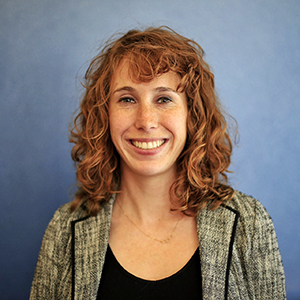Up to 50 percent of chronically homeless adults are estimated to have been homeless as youth, yet little research has been done to study youth homelessness. With that in mind, LISC’s Pay for Success team is working to scale up a promising program in the Washington, DC area. Working with the Latin American Youth Center, this PFS project will take LAYC’s Promotor Pathway Model®, an evidenced-based case management program designed for disconnected and disengaged youth facing multiple obstacles, to the next level.
Social investors and community development financial institutions have struggled for decades to move the needle on the issue of chronic homelessness. The United States Interagency Council on Homelessness indicates that even with the most aggressive use of existing resources, roughly 25,500 individuals will remain homeless increasing public costs such as avoidable emergency department visits, jail stays or shelter costs.
One solution is permanent supportive housing for the chronically homelessness that pairs housing subsidy with supportive services and case management. This model is proven to be a cost-effective strategy to bring health, well-being and stability into the lives of some of our most vulnerable populations. Evidence-based research shows that expanding access to permanent supportive housing has reduced chronic homelessness by 27 percent since 2007. However, chronic homelessness remains a challenge due limited funding for the development of supportive housing units and the provision of ongoing services.
Pay for Success (PFS) has emerged as an opportunity to provide a new source of financing for programs that are tackling the issue of chronic homelessness by focusing on providing permanent supportive housing, including much needed clinical and wrap around services. There are currently five launched PFS projects aiming to keep the chronically homeless population off the streets, ultimately reducing their use of the criminal justice system and the emergency room. For example, the Denver Housing to Health Initiative is providing permanent supportive housing alongside treatment, rehabilitation and support services to 250 chronically homeless adults.
But up until now, PFS projects tackling chronic homelessness haven’t focused on addressing risk factors that can prevent or reduce the likelihood of an individual becoming chronically homeless in the first place. Research by HUD suggests that young people may be the single age group that is the most at risk of becoming homeless. The Corporation for Supportive Housing and University of Southern California estimate up to 50 percent of chronically homeless adults were homeless as a transition-aged youth, yet little research has been done to study youth homelessness. Moreover, the limited research to date has had almost no impact on the development of public policy interventions.
This is why LISC is excited to be part of a team that is addressing the issue of youth homelessness in Washington, DC. Our project will use PFS to scale up a successful program by the Latin American Youth Center (LAYC) to serve 350 at-risk youth. LAYC’s Promotor Pathway Model ® (Pathway Model) is an evidenced-based case management program designed for disconnected and disengaged youth facing multiple obstacles. Case managers, called Promotores, support youth through on-going engagement and crisis intervention to remove barriers and engage youth in a broad set of programs and services in the community. A 2016 randomized controlled trial by the Urban Institute revealed that youth that worked with a Promotor were 60 percent less likely to have slept in a shelter or on the streets in the previous six months.
Additionally, our project is leveraging a larger framework created by Mayor Muriel Bowser and her team last year. Solid Foundations DC is a data-driven roadmap for building a system of support for youth experiencing homelessness, with the goal of ending youth homelessness by 2022. Federally, the Pathway Model can inform more effective strategies that reward service providers for enhanced coordinated care that result in better outcomes for transition-aged youth. For example, the Pathway Model leverages key components of the United States Interagency Council on Homelessness’ Preventing and Ending Youth Homelessness guide including a focus on key outcomes like creating permanent connections, connecting youth to education and employment, and focusing on social-emotional well-being.
The Pathway Model is an example of early intervention geared towards reducing the long-term effects of homelessness on transition-aged youth. Through the expansion of the Pathway Model, we hope to illustrate that early interventions reduce long-term instability and reduce the risk that youth will become chronically homeless adults. This project adds to a growing pool of evidence-based interventions targeting transition-aged youth while creating a new financing tool CDFIs to address chronic homelessness.
 ABOUT THE AUTHOR
ABOUT THE AUTHOR
Terry Gillen, Director, Pay For Success
Terry is responsible for coordinating the work of LISC’s Pay for Success team. Prior to joining LISC, Terry worked for the City of Philadelphia, as director of the Office of Federal Affairs and as executive director of the Redevelopment Authority. She also served as policy director for the Pennsylvania Department of Community and Economic Development.
 Anna Smukowski, Senior Director of Capital Programs, Enterprise Community Loan Fund
Anna Smukowski, Senior Director of Capital Programs, Enterprise Community Loan Fund
Anna Smukowski serves as ECLF’s senior director of capital programs, assisting ECLF’s capital and lending teams with capital raising and fund structuring. Prior to this position, she led LISC’s $200 million retail note offering, coordinated LISC investor relations and positioned LISC’s capital raising within ESG, impact and social bond frameworks. Anna also managed $50 million in LISC’s Paycheck Protection Program deployment and has structured and managed affordable-housing and economic-development funds as well as pay-for-success work through a Social Innovation Fund grant award. Anna is passionate about values-aligned investing from the individual to the institutional level and has worked on updating and implementing missionaligned investment policy statements at LISC and ECLF. Anna started her career as a strategy and operations consultant at Deloitte. Anna holds a bachelor of science degree from New York University Stern School of Business and an MBA from Columbia Business School.